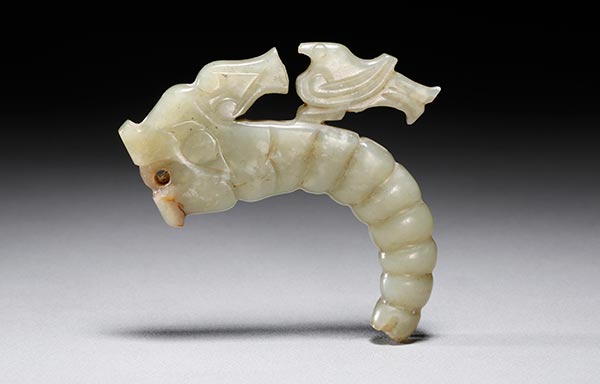 |
|
Jade silkworm-shaped dragon, from three millenia ago, unearthed in Henan. [Photo provided to China Daily] |
The worm is a mere 5.4 centimeters long. Its body is divided into nine segments, and it includes forelegs as well as middle and hind legs. Both its taut body and the slightly raised head are clear indications that the worm is in the process of spitting silk. It has been dated to the Han Dynasty.
"The level of realism achieved by the artisan responsible for the bronze silkworm is almost startling," Zhao says. "It testifies not only to the consummate craftsmanship, which could only be achieved through repeated rendering of the same image, but also to the emblematic status the tiny worm commanded at the time."
That would be the case for many years to come.
The Han government ran large workshops, some located right inside the imperial palaces in Xi'an, that could engage thousands of weavers, Zhao says.
These weavers, mostly female, could produce silk fabrics whose brilliant color schemes and sophisticated patterns can still be glimpsed from what has been unearthed during archaeological excavations along the Silk Road. (It is also worth noting that the weaving ladies must have enjoyed a relatively high social status compared with other craftspeople, since some - for example, Lady Bo, the birth mother of Emperor Wendi (203-157 BC) - were later handpicked to become the concubines and consorts for the Han rulers and their sons.)